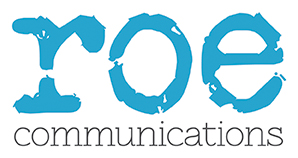 Starting a business is a major motivation for an increasing amount of MBA applicants, reveals a new study, Tomorrow’s MBA 2016 from CarringtonCrisp, supported by EFMD.
Starting a business is a major motivation for an increasing amount of MBA applicants, reveals a new study, Tomorrow’s MBA 2016 from CarringtonCrisp, supported by EFMD.
Focus on entrepreneurship
Conducted amongst 1,000 MBA applicants worldwide, the study found that almost one in five (20%) were considering an MBA in order to start their own business. In addition, entrepreneurship was rated as the fifth most valuable piece of content in an MBA degree, up from 10th in the previous year’s study. Amongst those considering a specialist MBA, entrepreneurship is now in the top four most popular choices (10%), along with IT (10%), international management (11%) and finance (15%).
Entrepreneurship has been a growing trend for a number of years. It presents an opportunity to those business schools that are able to market their start-up expertise, but it also poses some interesting challenges. Should entrepreneurship be taught in its own right within a specialised programme or is it better to be integrated throughout a degree programme? Business schools need to think about the differing needs of entrepreneurs and those students looking for more corporate roles. This obviously has implications for the type of career services and support required. It will be interesting to observe what effect a focus on entrepreneurship and start-ups will have on the brand of some business schools, particularly those who are looking to increase their expertise in this area. A greater amount of graduates starting up on their own may also force changes in some business school rankings, many of which consider pre and post graduate salaries in their calculations.
Increasing female applicants
The study also points to some other longer term trends. In line with similar industry studies, the good news is that efforts by business schools to attract more female students appear to be working, with women being 42% of the study’s respondents. Since the study started in 2009, the percentage of female respondents had not risen above 38% until this year and has been as low as 26%. Interestingly, male and female applicants differed on a number of elements when considering an MBA. For MBA course content, ‘leadership’ was more popular with men (40%) than women (29%). Conversely, 16% of women valued ‘ethics’ as important course content compared to only 5% of men. As with an increased focus on entrepreneurship, schools need to consider how to market effectively to both male and female applicants and then meet their study needs where they differ.
Focus of business schools and students sometimes differ
The study also found that some elements of MBA programmes seen by many schools as important were not highly valued by MBA applicants – including varied electives (8%), small class sizes (9%) and international study tours (11%). For course content, corporate social responsibility, long promoted by many business schools, was seen as most valuable by only 6% of respondents. An indication perhaps where the focus of students and business schools are not always aligned.
Some things never change
As well as a number of newer trends, the study reinforced certain factors that are ever present for MBA applicants when choosing a business school. Not surprisingly, these are a school’s academic reputation and teaching quality – consistently the most important elements since the study began.


